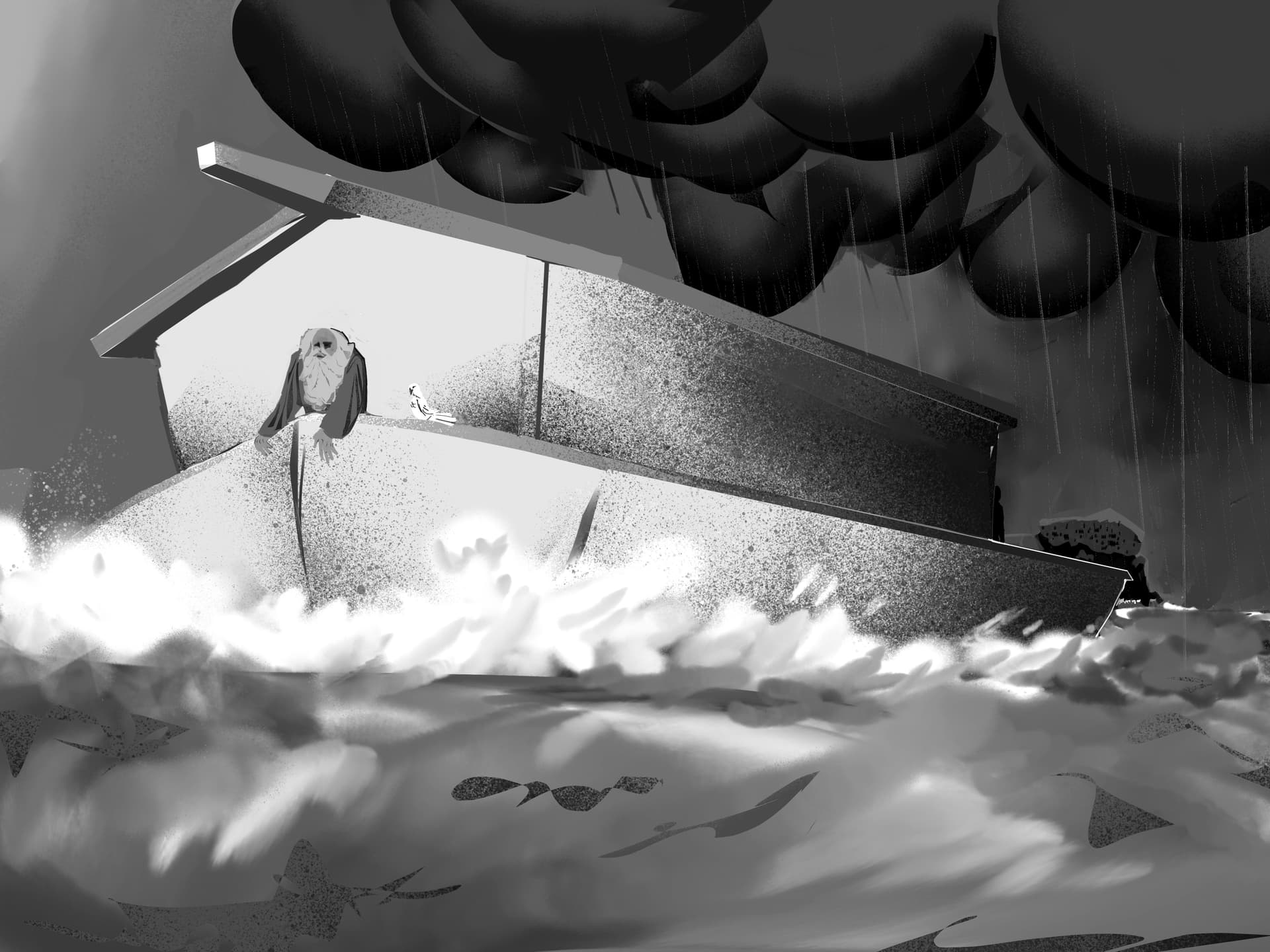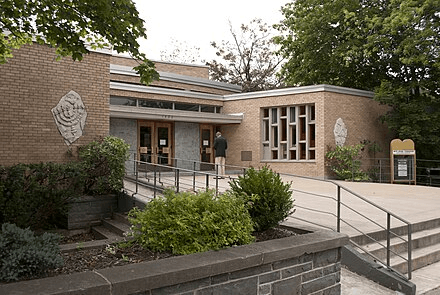Parashat Noah evokes a striking juxtaposition: a warm, colourful haven of diverse human and animal life safe against a dark backdrop of disastrous flooding. Outside lies panic and calamity; inside, safety and peace. This contrast mirrors the core of the Parashah: Noah’s virtue against the corruption around him. God, observing the wickedness of Noah’s generation, told Noah his plan to punish and “put an end” to all humanity. Noah, the only “righteous” man, was instructed to save his family and the animals of the earth by building them a protective wooden ark. When God opened the skies and punished humanity with destructive rain, the only survivors were Noah and the members of the Ark.
Judging from God’s decision to save Noah above all others, Noah must have been extraordinarily pious. But the Bible never outlines what precisely elevated Noah’s character.
11th-century Torah and Talmudic commentator Rashi proposes two readings of Noah’s character in an attempt to uncover the nature of Noah’s righteousness. One explains that Noah would be even more righteous in a ‘normally’ moral generation, as he would have had good examples to follow, but that he was exceptionally righteous nonetheless because he clung to his values despite his corrupt environment. The other theory describes Noah as righteous only compared to the evil around him, not by absolute standards. Perhaps Noah would be, as Rashi offers, “of no importance” if he had lived in another generation, such as Abraham’s.
Rashi’s latter theory brings to mind moral relativism, which asserts that morality is relative to a society’s context. A moral relativist might view Noah’s ethics as relative to the ethics of his evil peers, thus deeming him extremely righteous even if his behaviour would contemporarily be considered average. Should we assess Noah on a moral relativist basis? More broadly, is moral relativism useful in assessing Jewish history?
In his 1947 book If This is a Man, also known by its secondary title Survival in Auschwitz, Italian-Jewish chemist and writer Primo Levi recounts his experiences in Auschwitz. In one passage, he explains how theft for survival and dehumanizing material exchanges prevalent in the prison camps were necessitated by the horrendous conditions there. Reckoning with the question of morality in an immoral world, he concludes that the “ordinary moral world” could not survive “[his] side of the barbed wire”; Auschwitz was so beneath human morality that its victims can only be judged using a contextually tailored, or morally relative, lens.
Moral relativism, however, can be dangerous. Judging actions solely by their contextual morality can justify atrocities. Using the example of Noah’s evil generation, couldn’t moral relativism justify their wickedness, since they were acting based on the moral context that they knew and understood?
Perhaps Noah’s generation, like Levi’s, was so immoral that it can only be judged via moral relativism. This is not to directly compare Noah’s world to the horrors of the Holocaust, but rather to consider the application of moral relativism in both scenarios. Was Noah’s world immoral enough to constitute a moral realm entirely different from our conventional one?
After contemplating the application of Primo Levi’s justification of occasional moral relativism to Parashat Noah, I cannot definitively determine whether Noah is exceptionally or merely relatively righteous. But as Jews, it is our responsibility to investigate morality. We must foster the most moral version of the world possible, and honour Jewish history by granting it the grace of multiple perspectives. When we read Parashat Noah this week, let us question Noah’s unique role in an unethical world. In doing so, we can consider our own place in morally ambiguous situations, and ask ourselves the inestimable question: what does it mean to be righteous?
Powered by Froala Editor





